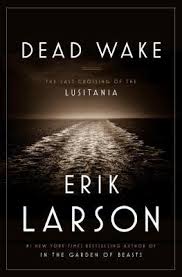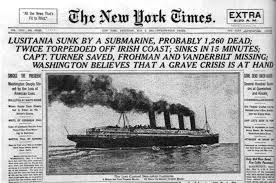I’ve been reading a lot of books lately. I love historical fiction, and the books I’ve picked up and cracked open have most recently been about wars. I’m supposed to be reading beach reads because it’s summer, right? My reading choices didn’t get that message. But my own mystery is a beach read, so feel free NOT to follow my example.
 Currently, I’m on page 112 of The Bone Tree by Greg Iles. Iles is writing a trilogy that may comprise about 2400 pages since the first two books are each over 800 pages apiece. I’m on the second book, (first book is Natchez Burning), and the trilogy is about the civil rights war in the South during the Sixties. I suppose that was an undeclared war, but I still think of it as a war, especially after reading the first book of this series. My only criticism of the first book would be the over-the-top violence in the last one hundred pages. But he is making a point, isn’t he? However, if violence is not your thing, I wouldn’t recommend this series. I have a good start on the 803-page second book, and it begins with a recounting of the main elements of Natchez Burning. I’m trying to figure out how he has the time to write all this when he’s out marketing and collecting awards.
Currently, I’m on page 112 of The Bone Tree by Greg Iles. Iles is writing a trilogy that may comprise about 2400 pages since the first two books are each over 800 pages apiece. I’m on the second book, (first book is Natchez Burning), and the trilogy is about the civil rights war in the South during the Sixties. I suppose that was an undeclared war, but I still think of it as a war, especially after reading the first book of this series. My only criticism of the first book would be the over-the-top violence in the last one hundred pages. But he is making a point, isn’t he? However, if violence is not your thing, I wouldn’t recommend this series. I have a good start on the 803-page second book, and it begins with a recounting of the main elements of Natchez Burning. I’m trying to figure out how he has the time to write all this when he’s out marketing and collecting awards.
I finished Dead Wake: The Last Crossing of the Lusitania by Erik Larson, the story of the Lusitania and the U-boat
 that sank it. A compelling read, it follows the passengers on the ship, Woodrow Wilson in love, the inhabitants of the coast where the ship went down and the survivors and bodies turned up, the German U-boat commander that sank it, and all the politics that went into trying to bring America into that war or blame people for the loss of the ship. Larson is the author of Devil in the White City and In the Garden of Beasts. He is an amazing historian, and his tale of the Lusitania is followed by pages and pages of bibliography. While it sounds like a nonfiction book, it really reads like fiction, so it has all the craft of a well-written narrative with the facts to back it up. It’s quite an amazing read—one of those books I couldn’t put down, and I read well into the night. Unfortunately, like the story of the Titanic, you know how it ends.
that sank it. A compelling read, it follows the passengers on the ship, Woodrow Wilson in love, the inhabitants of the coast where the ship went down and the survivors and bodies turned up, the German U-boat commander that sank it, and all the politics that went into trying to bring America into that war or blame people for the loss of the ship. Larson is the author of Devil in the White City and In the Garden of Beasts. He is an amazing historian, and his tale of the Lusitania is followed by pages and pages of bibliography. While it sounds like a nonfiction book, it really reads like fiction, so it has all the craft of a well-written narrative with the facts to back it up. It’s quite an amazing read—one of those books I couldn’t put down, and I read well into the night. Unfortunately, like the story of the Titanic, you know how it ends.
Most recently, I finished a five-book series by Anne Perry about World War I. Perry currently lives in Scotland, and she is best known for her two mystery series set in Victorian England and starring William Monk and Charlotte and Thomas Pitt. She also has this WWI series published in early 2000 about a British family caught up in the throes of war and  the massive social changes that war brought. The Reavleys—Joseph, Matthew, Judith, and Hannah—are the adult children in a family from a small village, and they lose their parents in a terrible occurrence in the first book, No Graves as Yet. That book follows the family before the war, books two to four during the war, and book five after the war. Perry strategically places each family member…Joseph is a chaplain at the Front, Judith is an ambulance driver, Matthew is in the intelligence service, and Hannah is at home in a small English village raising her children and awaiting her naval officer husband.
the massive social changes that war brought. The Reavleys—Joseph, Matthew, Judith, and Hannah—are the adult children in a family from a small village, and they lose their parents in a terrible occurrence in the first book, No Graves as Yet. That book follows the family before the war, books two to four during the war, and book five after the war. Perry strategically places each family member…Joseph is a chaplain at the Front, Judith is an ambulance driver, Matthew is in the intelligence service, and Hannah is at home in a small English village raising her children and awaiting her naval officer husband.
Because each character is in a particular job and geographic location of the war, we get to see what’s happening on the home front, and we also slog through the trenches filled with rats, mud, lice, and rain in this war of attrition. We follow Matthew both in England and on the front lines as an intelligence officer, and we see the politics going on behind the scenes. At one point Perry even takes us behind the German lines. Each book has a mystery in it, and the entire series has an arc about a mystery that encompasses the war as a whole. What an amazing structure! This is a hard series to put down, although I must admit that occasionally I had to get away from the mud and stench and death as I read this series. If ever a story portrayed the terrible loss of war and the millions of lives—and a generation—that were affected, Perry’s does in a dramatic way. And, of course, we did it all over again two decades later.
In recent weeks, I’ve been to both Gettysburg— the battlefield and cemetery—and also the monuments to Vietnam  and WWII soldiers in Washington, DC. All of these visits reminded me of the terrible sacrifice people, including friends and relatives, have made in the cause of freedom. Yes, sometimes the politics got in the way and sometimes questions were asked about the whys and how comes, but in the end it was the soldiers and families who were out in the trenches or waiting at home. Maybe that is why these novels about war make such compelling reading: they reflect the heights of bravery and compassion and the depths of cruelty and loss.
and WWII soldiers in Washington, DC. All of these visits reminded me of the terrible sacrifice people, including friends and relatives, have made in the cause of freedom. Yes, sometimes the politics got in the way and sometimes questions were asked about the whys and how comes, but in the end it was the soldiers and families who were out in the trenches or waiting at home. Maybe that is why these novels about war make such compelling reading: they reflect the heights of bravery and compassion and the depths of cruelty and loss.



Your choice of books to take to the beach is a bit heavy, but still a collection of outstanding books. Although I tend to read lighter books to help balance what’s being reported on the news, I love Anne Perry’s books. She always has a good message in her books. Also, I must confess that when I read “Devil in the White City,” I skimmed over the chapters tracking the activities of the serial killer.
After all this talk about war and serial killers, I’m going back to the book I’m currently reading–yours. So far, a terrific read. I just hope I don’t run into any serial killers in it.
Hi, Grace, I smiled at your reading activity with “Devil in the White City.” Fortunately, my books aren’t violent, or at least, like most cozies, you don’t see the violence. I love Anne Perry’s books too. I just read that she is now living in California. Thanks so much for reading my book. No, no serial killers. Hope you enjoy it!